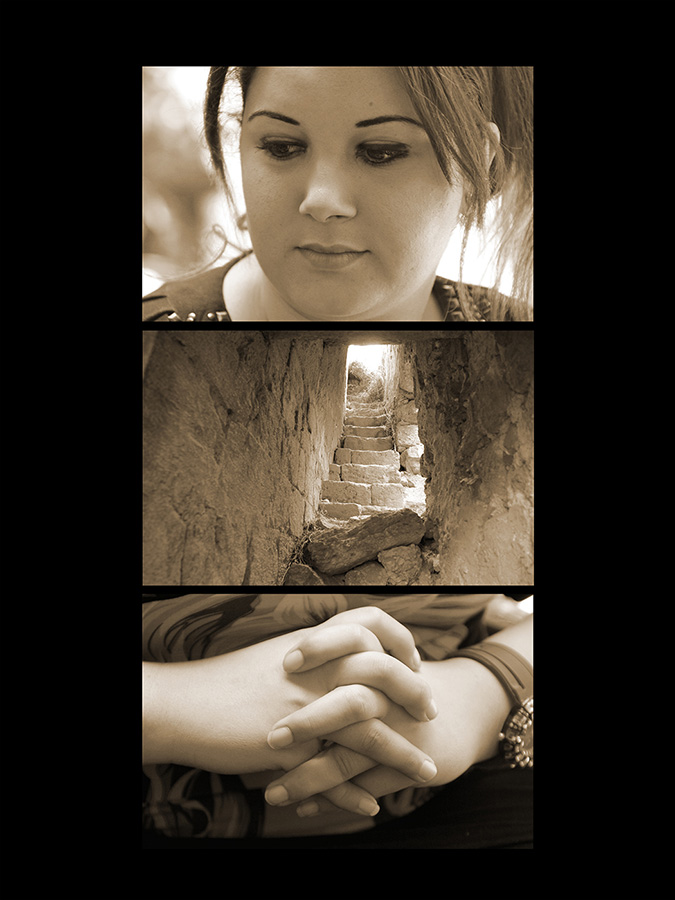| PORTRAITS OF DENIAL & DESIRE Sepia Prints (2014 - Present) |
 |
Rasha Khalil. Digital Print. Sepia. |
Rasha Khalil - Born and lives in Borj EL Barajneh Refugee Camp. Beirut, Lebanon.
Rasha Khalil was born in Burj el Barajneh Camp for Palestinian Refugees, located on the outskirts of Beirut, but when you ask her where she is from, she will tell you Kuweekat, the village that her paternal grandfather was displaced from in 1948. Her life is devoted to creatively resisting the cultural genocide imposed on the Palestinians. With very few resources, Rasha has founded a small puppet theater that helps to teach young children in the camps about their history, cultural identity and rights as Palestinian refugees. Rasha is the granddaughter of Umm Aziz, an elder who was displaced from Palestine in 1948 and who lost six of her children, her husband as well as other family members, to repeated episodes of brutal violence during the decades of forced exile. She is also the grandniece of Ahmed Essa Brieq, an elderly gentlemen from Kuweekat who became an internally displaced refugee when his village was ethnically cleansed and destroyed, forcing its indigenous clans to be dismembered and its families to be scattered in a now global exile. “When I speak with an elder from my village, it’s as if I am living in the village in the moment he is describing. I would cry with them when they spoke of their pain and laugh with them when they spoke of their joy. It’s as if I was living the moments they were describing… I remember my grandparents’ stories as if they were memories that I lived.”
|
